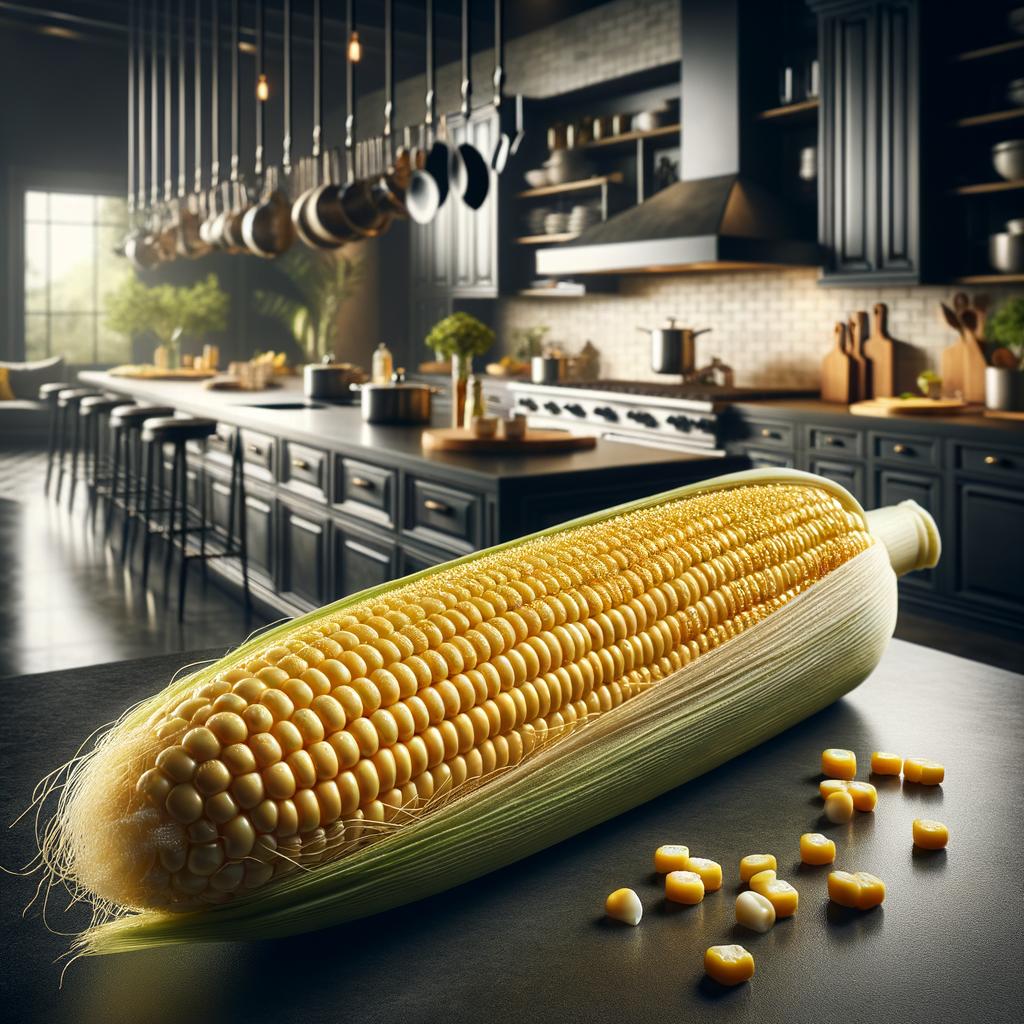Corn on the Cob

Description
Corn on the cob, also known as pole corn, cornstick, sweet pole, butter-pop, or long maize is a delightful feast for the senses. The golden kernels, wrapped in their natural leafy sheaths, glisten like tiny suns as they bask in the summer sun. The texture is a delightful combination of crunchy and juicy, each kernel bursting with sweet, earthy flavor as it is bitten into. What sets corn on the cob apart from its processed counterparts is its versatility and the unique, pleasurable experience of eating it directly off the stalk.
Primary Uses
Corn on the cob is a versatile ingredient that finds its way into numerous culinary preparations. It is commonly boiled or grilled, often slathered with butter and sprinkled with a dash of salt and pepper. It's a staple at summer barbecues and picnics, and a key component in many traditional dishes worldwide, from the Elote in Mexico to Bhutta in India. Besides its culinary uses, corn on the cob also serves non-culinary purposes. In many cultures, it is used as a symbol of harvest and fertility, and in some parts of the world, it is used as feed for livestock.
History
The history of corn is as rich and varied as its uses. Originating in Mexico over 9,000 years ago, it was a staple in the diets of ancient civilizations such as the Mayans and the Aztecs. Corn has been revered in folklore and myth, often considered a gift from the gods due to its high yield and nutritional value. Over time, it spread to different parts of the world, with each culture adopting and adapting it to their cuisine and traditions. Today, it stands as one of the most widely grown and consumed crops in the world.
Nutritional Information
Corn on the cob is not just a tasty treat, but also a nutritional powerhouse. It is packed with fiber, providing nearly 10% of the daily recommended intake in one serving. It also contains essential vitamins and minerals like Vitamin C, B vitamins, magnesium, and potassium. The yellow kernels are rich in antioxidants, particularly lutein and zeaxanthin, which are known to promote eye health. Compared to processed corn products, corn on the cob retains more of its nutrients, making it a healthier choice. However, it should be noted that while corn is nutritious, it is also high in carbs and can be high in calories when slathered with butter or oil.

